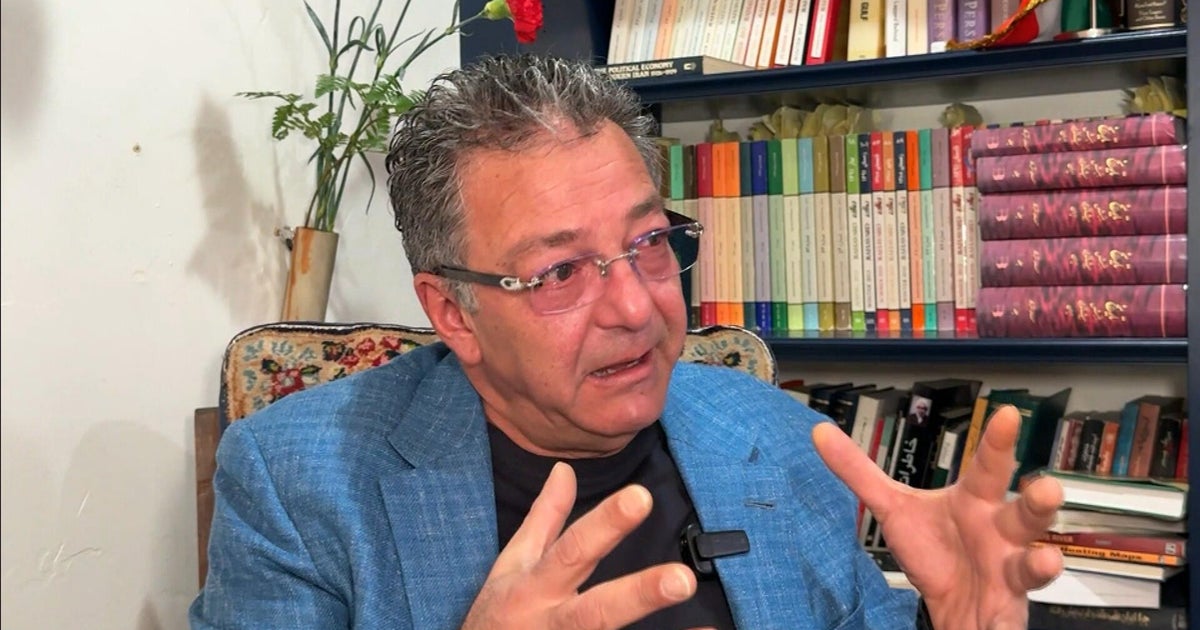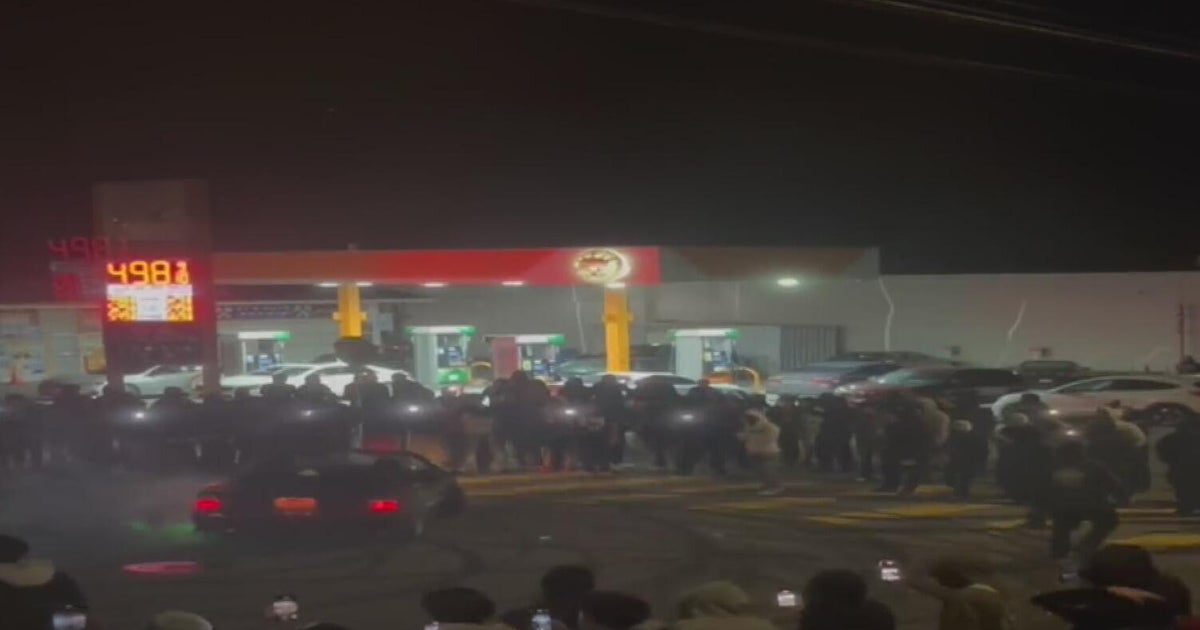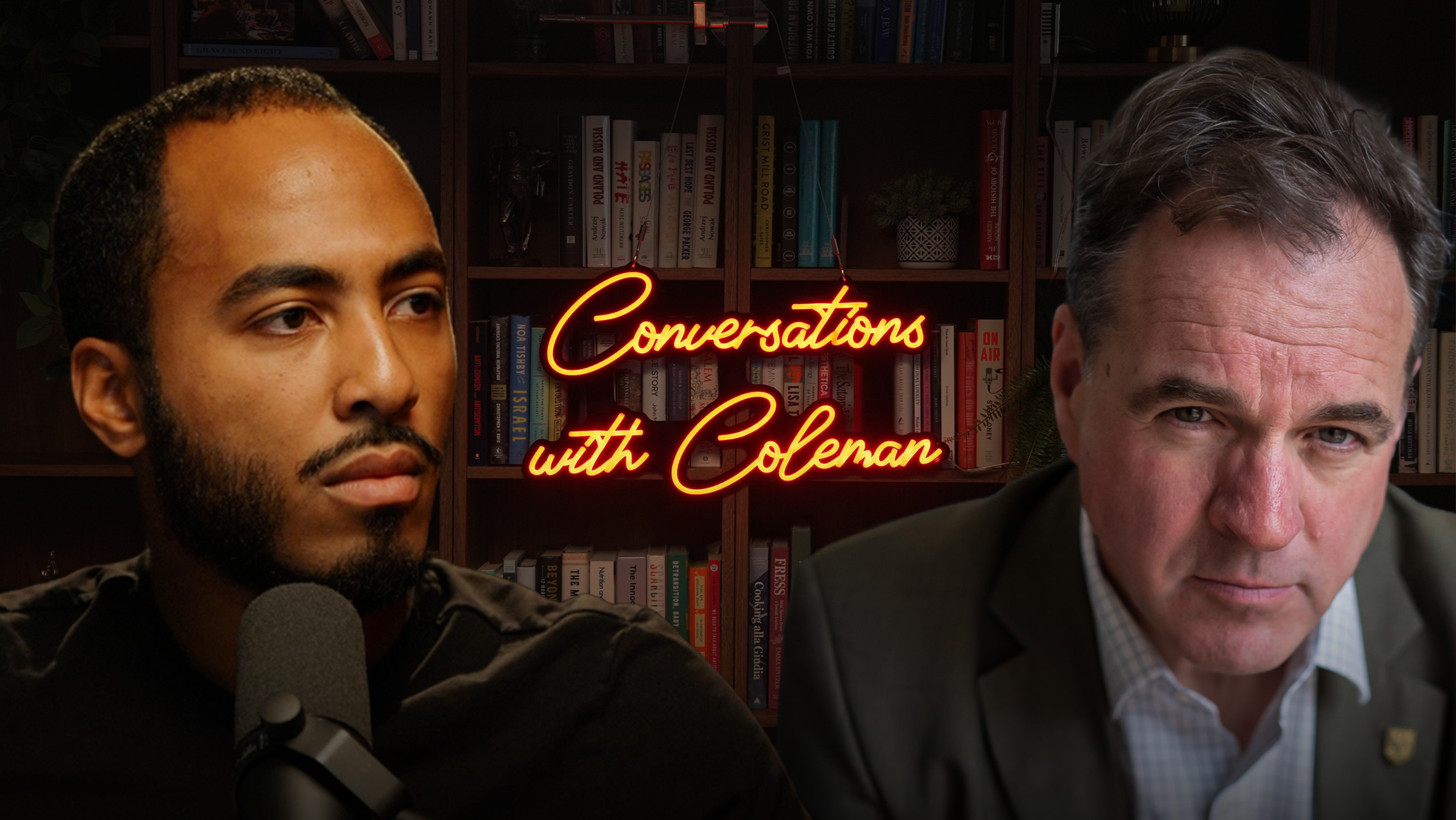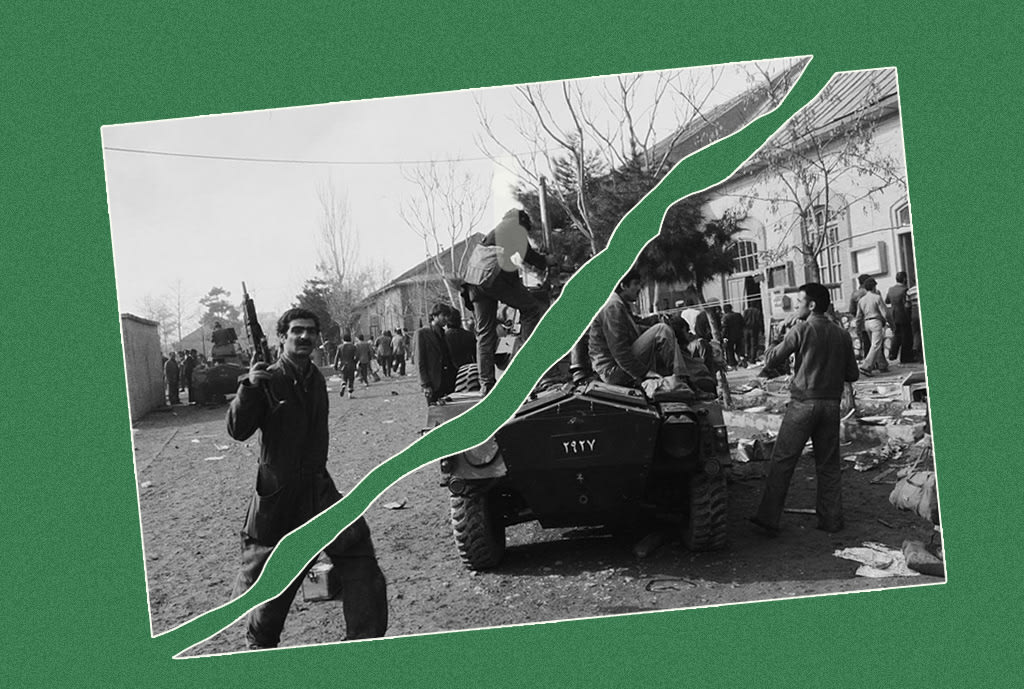Transcript: Parkland student activists on "Face the Nation," March 25, 2018
More than 200,000 people attended the March for Our Lives demonstration in Washington, D.C., on Saturday, the culmination of weeks of activism by students at Marjory Stoneman Douglas High School in Parkland, Florida, where 17 people were killed in February. The students called for stricter gun control and promised to hold politicians accountable at the ballot box if they don't act to prevent gun violence.
Five of those students -- Jaclyn Corin, Ryan Deitsch, Delaney Tarr, Cameron Kasky and Emma Gonzalez -- joined us to discuss the march and why they think their movement is different than past efforts to curb access to guns.
The following is a transcript of the interview with the students that aired Sunday, March 25, 2018, on "Face the Nation."
MARGARET BRENNAN: Today we welcome five of those student activists: Jaclyn Corin, Ryan Deitsch, Delaney Tarr, plus Cameron Kasky and Emma Gonzalez. Emma, what was that like watching yourself on tape there?
EMMA GONZALEZ: It was kind of weird. I mean in the moment it felt so good to finally say it because of course it's really stressful the whole day you're waiting and waiting and waiting and I was the last one. So it had just been building up and it felt so good to finally say it.
BRENNAN: Cameron, what is the overarching policy goal here? I mean what are you asking for here in Washington?
CAMERON KASKY: Well here in Washington we are demanding an assault weapons ban. We are demanding the prohibition of sales of high capacity magazines and we are demanding universal background checks which is something you'll see from the polls pretty much the entire country is behind and yet we've seen nothing of it.
BRENNAN: Well you did have a statement from the White House yesterday where the president said he appreciated you all celebrating your first amendment right. And pointed that his administration banned bump stocks they enacted the Stop School Violence Act which authorized grants to increase school safety and some actions to improve background check records. Do all you consider that progress?
JACLYN CORIN: You know the Stop School Violence Act doesn't even mention the word gun once. Obviously, school safety is important but it doesn't just happen in schools. And people need to understand that it's a public safety issue not a school safety issue. So we need to protect-- We need to fight the problem from the core which is guns.
KASKY: You'll notice in all these shootings-- not just the ones in schools and movie theaters, airports, churches, nightclubs-- there's no specific mental health issue that you can tie to every single one. The only thing you could tie to every single one is weapons that belong in the hands of soldiers in the hands of citizens who are untrained.
BRENNAN: Do you think that the more than 200,000 people who came out yesterday agree with all of the points that you have been asking for here? Delaney?
KASKY: Well, we got some news
DELANEY TARR: I mean I do believe that even if they - there's some difference in opinion on some small issues ultimately the fact is that all of these people coming to the largest march on Washington, because it is the largest march on Washington, they were there because they support the cause. They support safety. They support our lives and protecting our lives. And that's what matters. Even if there is some small issue that they don't necessarily stand with us on they stand with us and that's what matters.
RYAN DEITSCH: Well I mean I can say from firsthand as I said the line, 'we need to arm our teachers,' I heard booing from the crowd. I heard they were clearly not behind a message like that. And when I turned it around to say that they need to be armed with pens, pencils, paper and the money they need to support themselves, you could see the crowd regain support, regain like...
BRENNAN: You confused people a little bit on that.
DEITSCH: So there were - I did confuse a lot of people but the crowd was very like-minded because they all were on the same page that they just didn't want to see all these innocent children die.
BRENNAN: Now you all are not just rallying here in Washington. You've also been pushing in your home state of Florida. But Florida did just decide that they're going to allow training of some teachers to be armed. Some districts can opt out. Do you feel like you lost the argument back at home?
KASKY: Not at all. As a matter of fact in Florida they passed a bill that raised the age to 21 added a three day waiting period. These are very small steps in the right direction. But I think you'll notice if all teachers are required to be armed or at least several teachers per building many teachers will quit. We have - every single teacher from my school that I've spoken to said that if there was an armed teacher in their building trained or not they would be out of there. Arming teachers only puts kids more in danger and it puts the teachers in more danger.
BRENNAN: Were you surprised to see action in your home state before you saw it in Washington?
CORIN: Yes very much so because Rick Scott is funded by the NRA.
BRENNAN: Your governor.
CORIN: Yes, our governor and he defied it in a sense. And the NRA in turn sued the state of Florida. So that's obviously a step in the right direction. He's running for senator so that might have been a reason why he did it to get the popular vote but it's still a step.
BRENNAN: You're cynical? You're political gaming here, huh?. I mean you are student class president is that right?
CORIN: Yeah.
BRENNAN: When you're looking at this kind of political activism right now are you inspired that you want to actually become politically involved after you graduate?
CORIN: 100 percent yeah.
BRENNAN: You want to run for office yourself someday?
CORIN: Maybe so. I mean I wasn't really politically involved before this. But I've learned so much in a matter of a month and a half that it's intrigued me. Poli Sci, yeah.
BRENNAN: We're going to take a break in a few seconds so we don't have much time here and then we'll come back and finish the conversation but quickly-- can you raise your hand if you're going to be voting in November? Are you eligible to vote?
(All students raise their hands except Kasky.)
CORIN: My birthday is in October so I hit the mark.
KASKY: I'm not a Russian computer so I can't vote in the next election. But for the one vote I can't cast we'll have thousands for us.
BRENNAN: And do you have congressional candidates who have signed on to your agenda?
GONZALEZ: We're not endorsing any political figures.
BRENNAN: Are they endorsing your platform?
KASKY: We endorse ideas not people.
TARR: If they choose to support us then we absolutely we, we love that. We want, we want support. But we're not endorsing any particular candidates.
BRENNAN: We have to take a real quick short break but I want all of you to stay with us and all of you at home as well. We'll be right back.
(COMMERCIAL BREAK)
BRENNAN: Welcome back to Face the Nation. I'm Margaret Brennan. We continue our conversation with Stoneman Douglas High School students Jaclyn Corin, Ryan Deitsch and Delaney Tarr, plus Cameron Caskey and Emma Gonzalez. You guys are more than-than students. You've become activists. You've had this incredible turn out not just here in Washington but around the country. Emma, how do you keep this momentum going?
GONZALEZ: We're going to be pushing for, just as Ryan was saying, we're going to be revving up for the election. This is not the end. This was just the beginning. We're going to over the summer we're going to try to, you know, go around to colleges and stuff in our communities, reach out to the kids locally all around the country. And we didn't just have support all over the country. We support all over the world. We had like almost 900 marches yesterday.
BRENNAN: What did that feel like?
GONZALEZ: It was amazing.
BRENNAN: I mean what did you do after the march? Did you go home and watch the news coverage?
GONZALEZ: We went to eat some food and we had a nice hang out at the hotel which is why my voice is so horse because I was screaming like the whole night.
KASKY: We-- You know moving forward it's all about registering to vote, educating others and starting more of a conversation so more people get politically involved because again the youth of America needs to step up and start voting. You'll see the statistics. It's an embarrassing turn out. One in five people in the last election showed up in the 18 to, was it, 29 demographic?
CORIN: 18 to 29.
KASKY: And--
BRENNAN: And you think-- for you all at this table you have become single-issue voters. You won't back someone or vote for them unless they sign onto the agenda that you laid out?
GONZALEZ: We're not backing anybody in general and we're not single-issue voters at all--
BRENNAN: But when you do get the chance to vote that is something-- you won't vote for someone who doesn't support what you're asking for?
CORIN: Yeah, it should be something that is at the forefront of the political conversation. It kills more people a year than leukemia. It's an epidemic that we need to face.
BRENNAN: But which-- specifically someone has to call for a ban on AR-15s for you to vote for them?
CORIN: I mean, I would favor that candidate over another one that-- as long as they support some of our ideals more so than the other person, I would vote for them
TARR: And we know that this is an issue of compromise and not necessarily in every state we're going to have a politician who is asking for everything that we're asking for, but we want more than anything our voters to make educated votes. We want them to know what it is they're voting on and that's what we've been pushing because even if they don't necessarily always agree with us, our country needs to know what they're voting on. We can't have them stand behind when there's issues like this that need to be at the forefront of the conversation. Like Jackie said this needs to be a centralized issue in the next election.
KASKY: From what you've seen from very recent polls -- we were at Fox News this morning we saw a poll they put out -- the American people are starting to not be interested in putting anybody into office who's on the NRA's payroll.
BRENNAN: Well, we actually also have a poll ourselves that I wanted to cite to you. The CBS News YouGov poll shows two thirds of those surveyed say they need to agree with their candidate for the midterm elections on the issue of gun control. So what we see in November is going to be heavily influenced they're saying by where that candidate stands on gun control. That's consistent among Democrats, Republicans and independents.
CORIN: As it should be.
GONZALEZ: Because this is a non-party issue. This is bipartisan.
KASKY: And this is one of the issues at the forefront of our nation right now because as you've seen there have been shootings since the one at Stoneman Douglas. This violence isn't going to end unless we do something concrete.
BRENNAN: And yet you didn't see the change that you were asking for immediately. This for you is a long-term campaign?
DEITSCH: Well it's- it's the government, their bureaucracy and they will continually bog things down. I mean the Stop School Violence Act if you actually read the whole thing it doesn't really do much. Most of it is already things that have been done especially in our school. A lot of those were already checked off. But these things still happened. I mean it's just going to continue to happen unless we change something.
KASKY: That bill, the silent rhetoric behind it is that since the government will never agree on anything, let's pass something very easy and simple that everyone can get behind. But that's because it doesn't do anything. This-- that bill does nothing to keep the students or people outside of schools outside of the line of fire and we're fighting for people everywhere.
BRENNAN: That bill you're talking about Fix NICS? You're talking about--
ALL: Stop School Violence Act.
KASKY: This isn't just in schools. We met with people from communities, who have who are frightened to leave their houses because-- and who have woken up to the sound of gunshots very frequently. This is everywhere. This is an epidemic. And to Stop School Violence Act does almost nothing to stop it. It doesn't say the word gun once. It doesn't say the words background checks once and 97 percent of the country in a poll showed that they support universal background checks. Anyone who doesn't, I don't understand that.
BRENNAN: All right. Well all of you, as you say, you're going to continue to work on this. We'll continue to track what you get done. Thank you very much for coming here. Congratulations--
ALL: Thank you.
BRENNAN: --On the rally, I know you're all very excited about that. We'll be right back.





